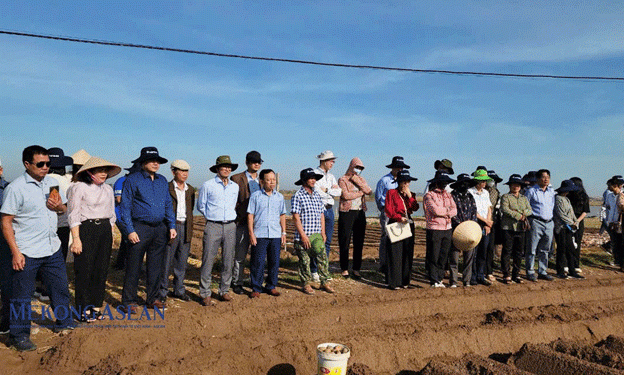According to Lê Quốc Thanh, Director of the National Agricultural Extension Center, the Vietnamese government aims to increase the value of agricultural exports, including potatoes, to $8-10 billion by 2030. Despite a burgeoning demand for processed potatoes, with an estimated need of 180,000 tons annually, domestic production currently meets only 35-40% of this demand, necessitating imports from various countries. This gap indicates significant room for growth in Vietnam’s potato sector.
In Northern Vietnam, where the climatic conditions are favorable for potato cultivation, approximately 400,000 hectares are dedicated to winter crops annually, of which potatoes occupy 15,000-18,000 hectares, yielding between 250,000 and 320,000 tons. Experts estimate that with optimal land and weather conditions, production could potentially increase to 150,000-200,000 hectares.
PPP Initiatives and Technological Advancements
The establishment of the Sustainable Agricultural Development Partnership has paved the way for cooperative ventures, notably the collaboration among PepsiCo, Syngenta, and local agricultural bodies to enhance the potato value chain. These partnerships focus on sharing knowledge and technologies to create a closed-loop production model, ensuring that farmers receive quality seeds and advanced farming techniques.
PepsiCo’s involvement since 2008 has significantly impacted local farming practices. From the initial 27 hectares cultivated by four farmers, the program has expanded to over 1,500 farmers and nearly 1,700 hectares, with yields surpassing averages in Thailand and Indonesia. Notably, some farmers reported yields as high as 54 tons per hectare.
In 2023, the implementation of advanced agricultural technologies led to average yields between 30-34 tons per hectare, showcasing the potential benefits of integrating modern farming practices. The partnership’s innovative approaches, such as drone technology for monitoring and precise irrigation systems, have allowed farmers to optimize resources and enhance productivity.
Challenges Facing Farmers
Despite these advancements, farmers in Northern Vietnam face several hurdles. Many regions still rely on small-scale farming, which complicates quality management and market access. Additionally, the lack of structured planning for potato cultivation often results in competition with other crops, causing inconsistent production levels. High production costs and inadequate quality control measures further exacerbate these challenges.
Phạm Thị Đào, Deputy Director of the Hải Dương Department of Agriculture, indicates that potato cultivation in the province has decreased to approximately 700 hectares due to labor shortages and high seed costs. With average yields of 144.61 quintals per hectare, there is a pressing need for comprehensive strategies to boost potato production, improve quality, and ensure consistent market supply.
Moving Towards Sustainable Agriculture
Sustainability remains a key focus as Vietnam seeks to establish a resilient agricultural framework. As highlighted by industry leaders, the shift towards green agriculture involves not only enhancing productivity but also ensuring environmental protection and adaptability to climate change. PepsiCo’s initiatives have not only increased local yields but have also emphasized responsible farming practices.
Farmers like Trần Danh Tăng have benefited from innovative cultivation methods that enhance both yield and safety. With guaranteed market access, participating farmers have reported significant income improvements and a shift towards more sustainable practices.
The path ahead for potato production in Northern Vietnam is filled with potential but requires collective effort among farmers, companies, and government bodies. By embracing technology and fostering sustainable practices, the industry can meet growing demands and secure a prosperous future for Vietnamese potato farming.







